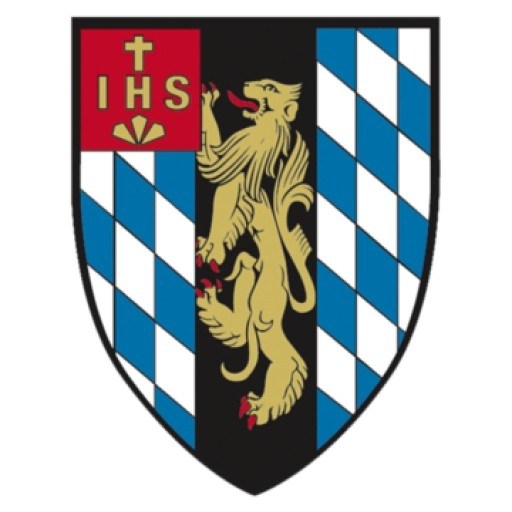Photos of university / #universityofgroningen
The Bachelor's degree programme in Religious Studies at the University of Groningen offers students a comprehensive and interdisciplinary exploration of religions, spiritual practices, and belief systems worldwide. Designed to provide a critical understanding of the role religion plays in shaping cultures, societies, and individual identities, this programme combines theoretical insights with practical approaches. Students will examine the historical development of major world religions such as Christianity, Islam, Buddhism, Hinduism, and Judaism, as well as explore smaller religious movements, indigenous beliefs, and new religious phenomena. The curriculum encourages active engagement with contemporary issues, including secularism, religious tolerance, religious diversity, and the impact of religion on politics and social change.
Throughout the programme, students develop essential research skills, including textual analysis, ethnography, and qualitative and quantitative methods. They are encouraged to critically analyze religious texts, practices, and symbols, and to consider the significance of religion in contemporary global contexts. The programme emphasizes the importance of cross-cultural understanding and aims to foster a nuanced perspective on religious diversity and dialogue. Students have opportunities for international exchange and to participate in fieldwork, gaining practical experience in the study of religion in different settings.
The programme prepares graduates for careers in education, journalism, policy analysis, international organizations, and religious organizations. It also provides a solid foundation for further academic research or postgraduate studies in Religious Studies, Theology, Anthropology, or related fields. The University of Groningen's supportive academic environment, combined with its extensive resources and research centres, ensures that students receive a thorough and engaging education. With an emphasis on critical thinking, cultural awareness, and ethical understanding, the Bachelor's in Religious Studies at Groningen equips students with the knowledge and skills necessary to navigate and contribute thoughtfully to an increasingly diverse and interconnected world.
The Bachelor's program in Religious Studies at the University of Groningen offers students a comprehensive exploration of religious beliefs, practices, texts, and institutions from a multidisciplinary perspective. Over the course of three years, students engage with various aspects of religion, including its historical development, cultural expressions, philosophical foundations, and social functions. The program aims to develop critical and analytical skills, enabling students to examine religious phenomena in diverse contexts and develop well-founded perspectives on complex issues related to faith, spirituality, secularism, and intercultural dialogue.
Throughout the curriculum, students study major world religions such as Christianity, Islam, Judaism, Buddhism, Hinduism, and indigenous spiritual traditions, gaining insight into their doctrines, rituals, ethical systems, and organizational structures. In addition, the program emphasizes the study of religious texts, myths, symbols, and art, providing a deeper understanding of how religions communicate their core beliefs and values. The program also encourages critical reflection on contemporary issues such as religious tolerance, conflict, fundamentalism, and secularization, preparing students to analyze the role of religion in modern society.
The teaching methods include lectures, seminars, case studies, and independent research projects, fostering an active learning environment. Students are encouraged to develop their research skills and carry out independent investigations supported by an extensive academic library and digital resources. Practical assignments, such as presentations and group discussions, promote collaborative learning and intercultural communication.
The program also offers opportunities for international exchange and internships, allowing students to gain practical experience in religious organizations, cultural institutions, or NGOs. Graduates of the Bachelor's in Religious Studies will acquire valuable knowledge and skills applicable in various professional fields, including education, cultural management, journalism, social work, diplomacy, and academia. With a strong emphasis on critical thinking, cultural awareness, and ethical understanding, the program prepares students to contribute thoughtfully and responsibly to societal debates on religion and contemporary global issues.
Admission requirements
IELTS: 6.0 (6.0 on each part); TOEFL iBT 60 (minimum 18 speaking, 21 writing) (not for native speakers)
Other requirements
- taaltoets cijfer De studie kan volledig in het Engels gevolgd worden. Nederlandse studenten met een VWO-diploma hoeven geen taaltoets te doen om de opleiding volledig in het Engels te volgen.
- taaltoets cijfer IELTS: 6.0 (6.0 on each part); TOEFL iBT 60 (minimum 18 speaking, 21 writing) (not for native speakers)
- taaltoets cijfer Dieser Studiengang ist für internationale Studenten zugänglich. Da der Unterricht aber auf Niederländisch abgehalten wird, ist es obligatorisch, dass Sie Niederländisch ausreichend beherrschen. Für die Zulassung zu den niederländischen Studiengängen müssen sie beweisen, dass Sie gute Kenntnisse der niederländischen Sprache haben, indem Sie vor Studienanfang das Staatsexamen NT2-II (Niederländisch als Fremdsprache) bestehen (www.duo.nl). Sie können sich durch die Teilnahme an Kursen im Sprachenzentrum (Talencentrum) der Universität Groningen auf das Staatsexamen vorbereiten. Dies dauert etwa ein Jahr. Das Sprachenzentrum der Universität Groningen bietet deutschsprachigen Studienbewerbern, die an der Universität Groningen studieren, auch eine IntensivKurs Niederländisch für Deutsche Studienbewerber. Dies verkürzt die Vorbereitungsdauer (http://www.rug.nl/science-and-society/language-centre/language-courses-and-communication-training/dutch-for-non-native-speakers)
- vooropleiding (ISPAC: vereiste vooropleiding) Dutch VWO diploma, a German Abitur, an International Baccalaureate diploma, a European Baccalaureate or another diploma that is sufficient for acceptance to a Dutch university.
Funding opportunities for the Religious Studies program at the University of Groningen include a variety of options for both domestic and international students. The university offers several scholarships and financial aid programs to assist students in covering tuition fees and living costs. The Holland Scholarship is available for outstanding international students from outside the European Economic Area, providing a one-time grant to support their studies. Additionally, the University of Groningen Excellence Scholarships are awarded to excellent students, which can significantly reduce tuition fees for the duration of the program. Students are also encouraged to seek external funding sources such as government scholarships, educational loans, and private sponsorships available in their home countries, which can be utilized alongside university-funded options. For students from the Netherlands, there are government-sponsored student grants and loans, such as those provided by DUO, the Dutch education agency. The university provides guidance and support in the application process for these financial aids through its student services and financial aid office. Part-time work opportunities are available on campus and in the surrounding area, enabling students to earn income to support their studies while gaining valuable experience. International students are particularly advised to explore scholarship programs specific to their country of origin, as well as Erasmus+ exchange grants if participating in exchange programs within Europe. The university also offers specialized awards for research projects or excellence in specific disciplines, which can be applied for during their studies. In summary, students enrolled in the Religious Studies program at the University of Groningen have access to a comprehensive range of funding options, including scholarships, grants, loans, and part-time employment, to facilitate their academic journey and living expenses throughout their studies.
The Bachelor's degree in Religious Studies at the University of Groningen offers students a comprehensive understanding of various religious traditions, beliefs, practices, and their roles in societies throughout history and in contemporary contexts. The program emphasizes an interdisciplinary approach, integrating insights from anthropology, history, philosophy, sociology, and cultural studies to explore the complex phenomena of religion worldwide. Throughout the course, students examine major world religions such as Christianity, Islam, Hinduism, Buddhism, and indigenous spiritualities, alongside smaller and lesser-known traditions, to gain a nuanced perspective of religious diversity. The curriculum encourages critical thinking and analytical skills, enabling students to assess religious texts, practices, and institutions critically and thoughtfully.
The program is designed to develop a deep appreciation for the cultural and social significance of religion, as well as its influence on politics, identity, and societal development. Students learn to approach religious topics with sensitivity, academic rigor, and an understanding of the diverse ways in which faith impacts individual lives and societal structures. The university offers a variety of lectures, seminars, workshops, and fieldwork opportunities that allow students to engage directly with religious communities and practitioners.
Internship and research opportunities are available, enabling students to apply their knowledge in real-world settings and to participate in ongoing research projects led by faculty members. Language skills are also emphasized, with courses aimed at improving proficiency in relevant languages such as Latin, Greek, Hebrew, or Arabic, depending on student interests and focus areas. The program prepares students not only for further academic pursuits, such as Master’s or PhD studies, but also for careers in education, journalism, public policy, intercultural consultancy, and religious organizations.
Graduates of the program are equipped with a strong foundation for understanding the complex role religion plays in contemporary global issues, including interfaith dialogue, religious conflicts, and the promotion of cultural understanding. The university’s location in Groningen provides a vibrant, cosmopolitan environment where students can actively participate in diverse cultural and religious communities. Overall, the Bachelor’s program in Religious Studies at the University of Groningen aims to produce well-informed, empathetic, and critically engaged graduates capable of contributing thoughtfully to discussions on religion in a globalized world.







